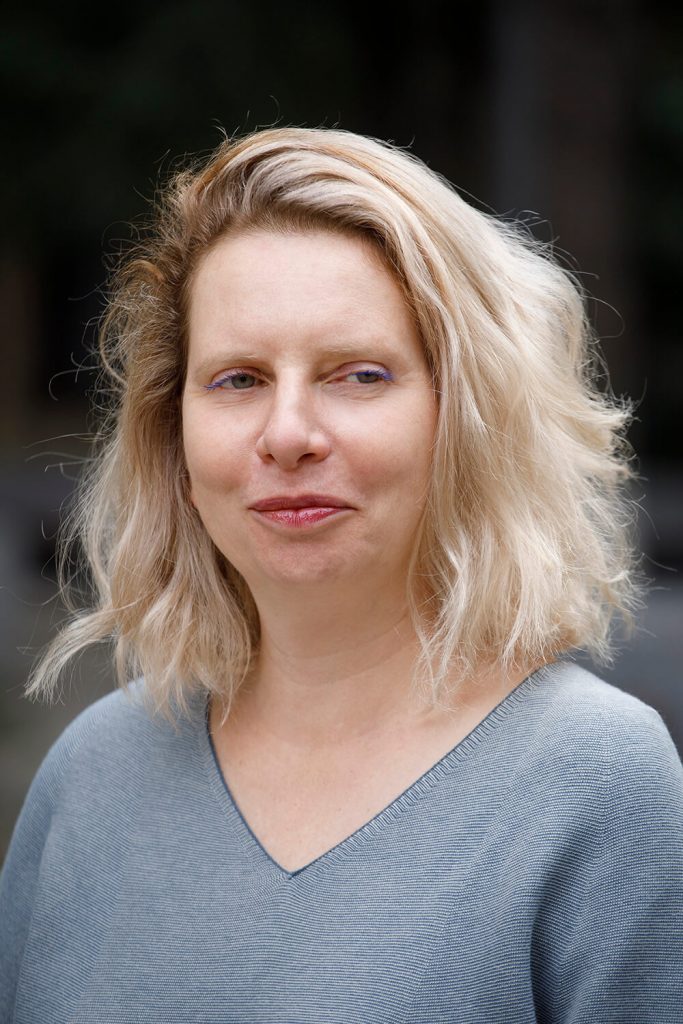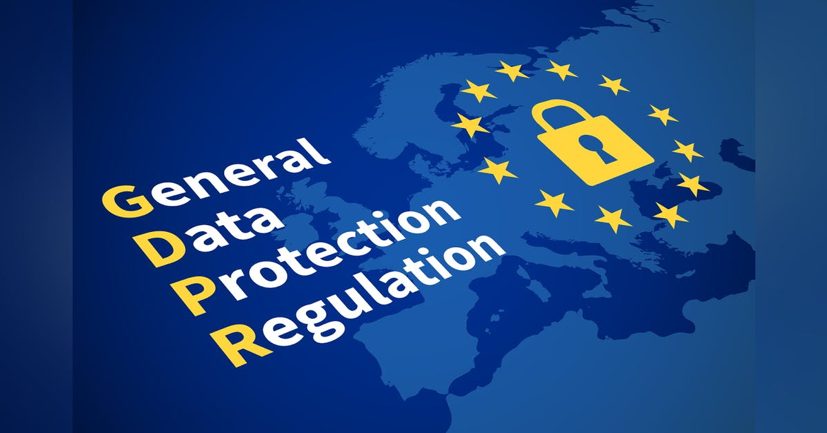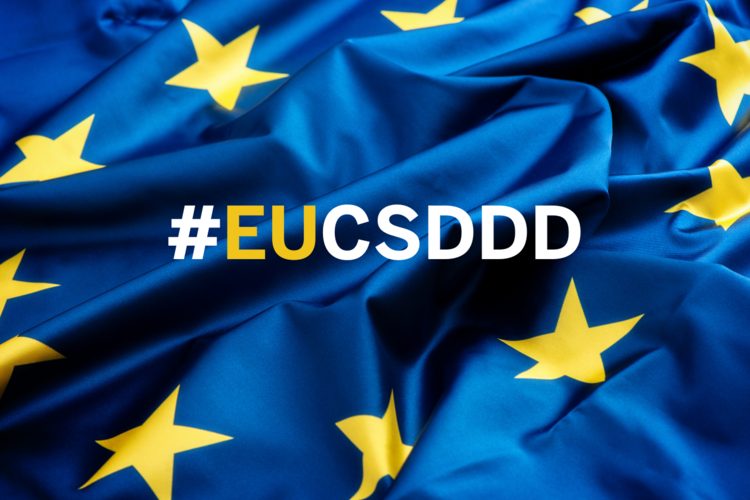Ambassador of SDG 16 – Peace, Justice and Strong Institutions
Head of Council of Europe Office to Georgia, Natalia Voutova

Natalia Voutova
What does SDG 16 stand for? How can we achieve access to justice for all?
SDG16 is a very important one. First of all, it’s about peace. It’s about efficient justice and strong state institutions. And this is what the Council of Europe is actually about. We believe that democratic security is part of peace, and we also believe, and we have been working for many, many years to make sure that, throughout all our member states, courts are functioning in a way to bring justice to citizens in effective and efficient ways. And for that, you have to have the courts functioning in a way which will allow for SDG 16 to be implemented and also strong state structures. State bodies are very important to ensure that citizens get their rights protected and promoted.
The very important work that you are doing on the global level, but also here locally, the Council of Europe operates through its local representations. You are heading the local representation. Let’s talk about how different institutions work here. Do we have access to justice for all? What are the challenges that we face, and how does the Council of Europe promote SDG 16?
Georgia is a very active member of the Council of Europe, and, indeed, we have been working for many, many years here in Georgia. And as I said, we also try to have this human-centered approach when it comes to justice. For instance, two or three years ago, we carried out an assessment as to what was the state of courts throughout the country when it comes to access for people, people with disabilities as well, to the court. We made some recommendations, and, for instance, the court in Zugdidi has been rebuilt according to our recommendations to make sure that people in wheelchairs, and people with other disabilities, have access to justice, including access to the buildings. We worked with the Georgian courts, and we promoted, we put in place, a system which makes sure that children have access to court through very simplified forms when they want to address the courts without the involvement of their parents or their guardians. We have done it as well, these kinds of forms, for people who cannot see. So, this is our approach towards human-centered court systems in Georgia. We work, of course, with the authorities to make sure that the legislation which is in place is up to the standards of our organization. The ethical aspect of the work of judges, prosecutors, and police officers is also according to what Europe expects, and, once again, Georgia is part of Europe. So that’s a very important part of our work as well.
We have also started working with authorities when it comes to human rights and the environment, which is high on the agenda for the Georgian authorities because, up until very recently, people wouldn’t see the link between environmental pollution and human rights. So, these are the new areas where the court system will have its say very soon as well.
You mentioned that you also work on the elimination of discrimination in terms of access to justice for all. But generally speaking, one of the important directions of SDG 16 is to promote and enforce non-discriminatory laws in Georgia specifically; we’re talking about the Georgian context. What challenges do we have in terms of enforcement of anti-discriminatory laws here in our country, and what can be done in order to enforce those laws more effectively?
The fight against discrimination is an issue worldwide. It is. It happens. Discrimination happens not only in Europe; it happens in all parts of the world. And what is important for us as an organization is why we fight discrimination. It’s because we believe that only an inclusive society is actually a prosperous society, where all citizens feel that the state protects their rights no matter their ethnic origin, their sexual orientation, their physical or mental disabilities, whether they’re a single parent or whether they’re a woman. So, it’s very important to have the institutions which promote and protect these rights, to have the legislation which is in place, to have strong NGOs and civil society organizations that fight for that and, of course, to have an overall policy of the state which fights against discrimination and promotes the rights of all. So, we work with the authorities when it comes to legislation because that’s the basis of all policies that you can have. For instance, we work with the private sector in order for them to be more involved in that. We work with non-governmental organizations but also with youth, which is important because only empowered citizens can really stand up for their rights, informed citizens, and make sure that the state protects their rights.
We were talking about the involvement of different sectors and the importance of the involvement of different sectors in the implementation of Goal 16. Which are the main sectors that we need to consider when we’re talking about access to justice for all? And it’s also important to talk about the importance of coordination between those sectors and multi-stakeholder coordination in the achievement of Goal 16 in general.
From our perspective, the way that we work in Georgia is we have an action plan which expands over four years, which has been agreed with the Georgian authorities, primarily also coordinated by the Ministry of Foreign Affairs, where we define the areas where we’re going to cooperate in the four years to come. Currently, this action plan covers about 20 areas where the Council of Europe works here in Georgia, and it’s a very good way to coordinate the activities and actions of the different stakeholders. I should also mention that this action plan is funded not by the Council of Europe but by the European Union, Norway, Sweden, the Netherlands, Switzerland – about 15 member states that are actually interested in the way that reforms are taking place in Georgia. And this is the way for the states and the European Union to further support the reforms in Georgia. So, the interactions between the Ministry of Internal Affairs, the Prosecutor’s Office, the Ombudsman’s Office, and courts – this is what happens as part of this action plan. As I said, we also involve the non-governmental sector, which plays an important role. We also work with the private sector, especially when it comes to anti-discrimination, because there is more and more understanding that this is an important part of where the private sector can contribute in Georgia. And they can see that more companies in Georgia take that on board, including gender equality. And it’s also a way for us to contribute to reducing the gender pay gap.
We were also talking about the involvement of the private sector in this process. Is it also very important to tell companies what role they play in terms of the implementation of Goal 16?
From our perspective, we involve more and more of the private sector when it comes to the fight against discrimination and different kinds of discrimination. First of all, it is gender-based discrimination, discrimination against people with disabilities, and ethnic discrimination. So, I think there is an understanding from what we observe in Georgia among the private sector that this is important and that it also contributes to their business goal because their social responsibility is engaged. They invest money, but they also invest spirit. They also show how the private sector can actually contribute to a prosperous society.
What would be your recommendations for how the business sector can be more involved in the implementation of SDG 16 in order to achieve this goal in the country?
When it comes to the business sector, obviously, for them, it’s very important to have a properly functioning court system, an efficient and effective court system. Of course, we’re talking about the access of citizens to the court system. But for the private sector, it’s of the utmost importance how it’s actually happening in reality for them when their businesses are to be protected in the courtroom. So, for that, I think that they can support a professional court system with judges who stand by very high ethical standards because this is also promoting the country economically. It also contributes to a better social climate for Georgia.
And for the government, what would be your recommendations to better enforce SDG16?For the government, it is to continue the reforms. Now Georgia has this European perspective. As I said, for the Council of Europe, Georgia is European. It has been a member of our organization for more than 20 years, so there are no doubts about that. But there is this other aspect where reforms need to be continued. They also need to be continued in accordance with what we do, in accordance with our standards. So, we encourage the authorities to continue on that path. When it comes to the non-governmental sector, it is to continue their work to support the citizens of Georgia. And when it comes to Georgia, to the citizens, I would say they have to be proud and empowered citizens of this country to remember that they have some strong traditions.




 Search
Search





